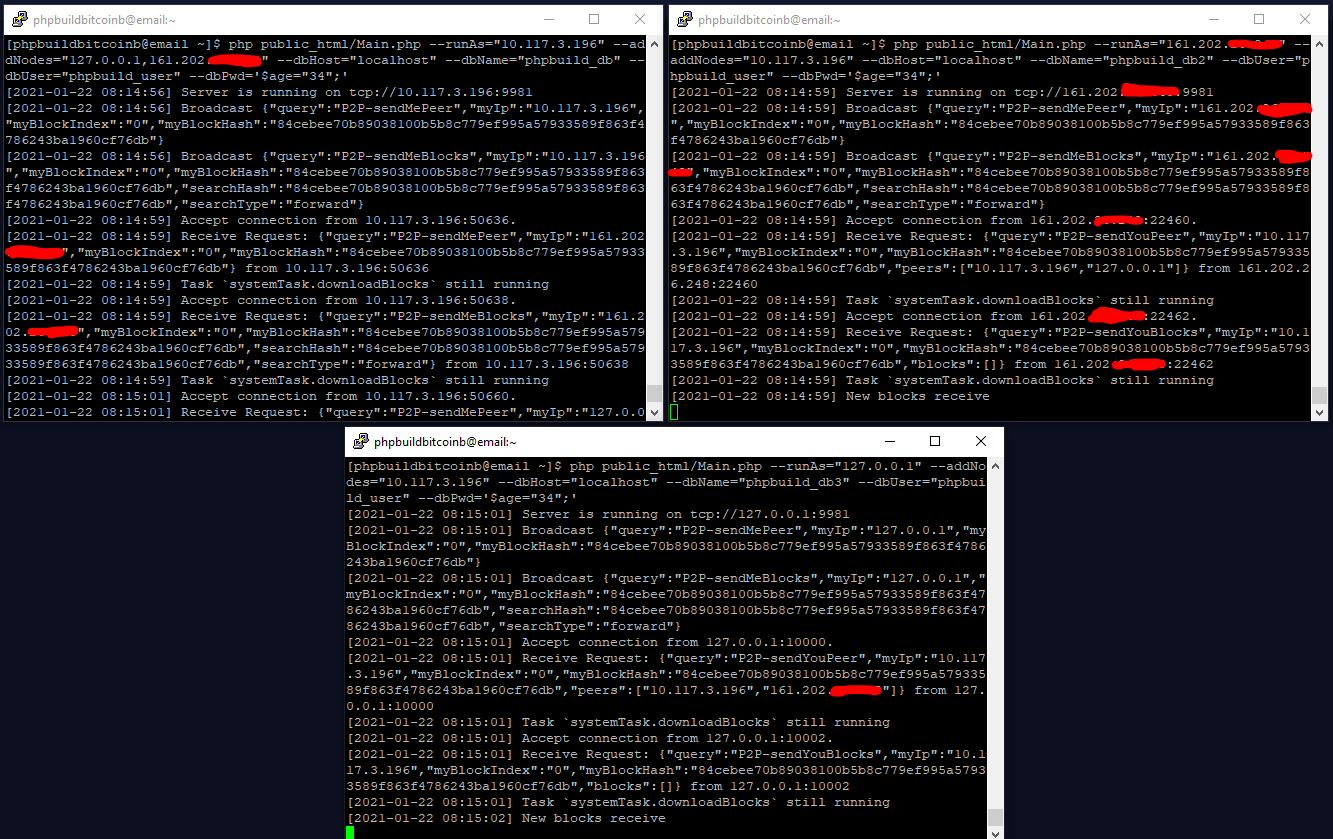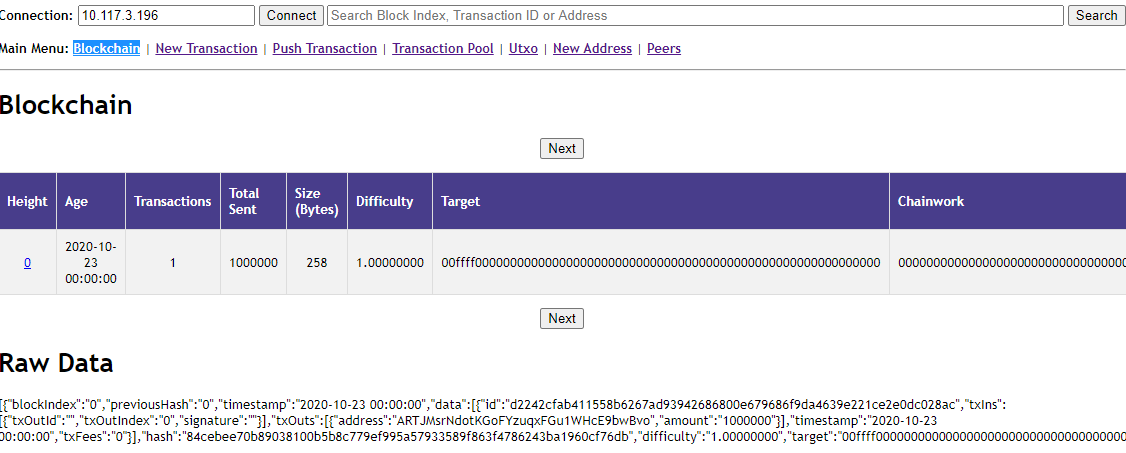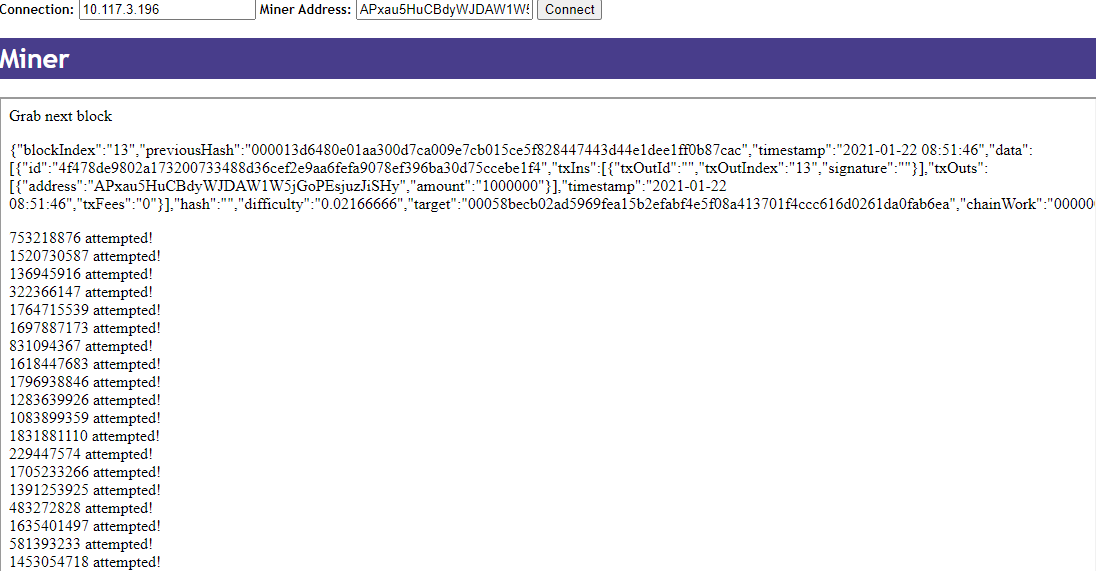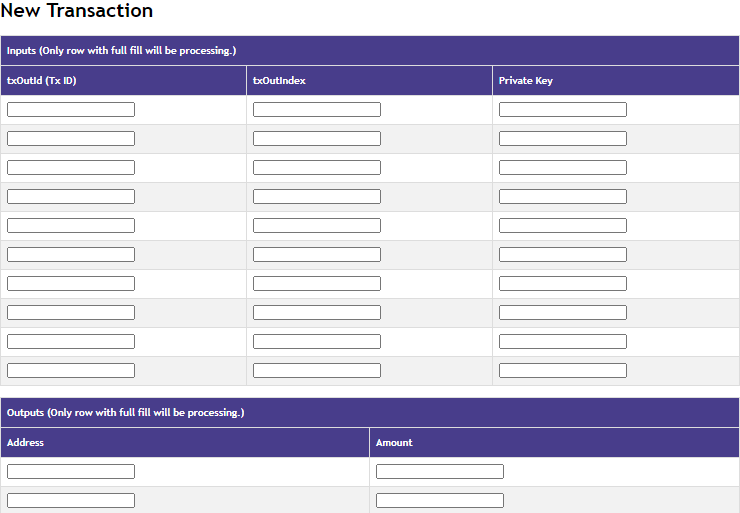So let's heading back to year 2008 and meet Satoshi Nakamoto
In this tutorial we will code from zero to form a basic features of working cryptocurrency. Most of work meets minimal working requirement and aims for simplicity and easy understanding.
We are using PHP and MYSQL mainly for backend, and a little bit Jquery when come to frontend.
This project is not ready for production launching, but rather we try to show you the basic principles of cryptocurrency that can be implemented in a concise way.
I hope this tutorial is helpful to you to step into blockchain development.
应一定数量的中文读者,
✅ Tested OK in environment with PHP>=5.5 & MYSQL 5.6
- Navigate to web root, then download git
# navigate to your working web root, assume web root folder is name public_html
$ cd public_html
# extract source code
$ git clone https://github.com/atlaschiew/build-bitcoin-php-mysql.git-
Create a new Mysql database and name it as
bitcoin_db, then import and execute all sqls contain inpublic_html/build-bitcoin-php-mysql/mysql.sql. Repeat this step twice for the other 2 nodes. Make sure all three databasesbitcoin_db,bitcoin_db2andbitcoin_db3are in there. -
Create mysql user
bitcoin_userwith proper password and privilleges and link it up to all 3 databases above. Please grant the new user with following privileges:SELECT, INSERT, UPDATE, DELETE, CREATE, INDEX, DROP, ALTER, CREATE TEMPORARY TABLES, LOCK TABLES. -
Please make sure these two php extensions
bcmathandgmpare enabled. -
We need 3 ip addresses for 3 TCP servers respectively to form a P2P network. Once you connected to internet, you should be able to get your PUBLIC IP, PRIVATE IP and LOCALHOST IP. In this tutorial, we assume public ip is 210.191.1.97, private ip is 192.168.0.12 and localhost ip is always be 127.0.0.1.
-
Now open up 3 command line interface (cli) as 3 new windows on screen. Login to each of them and proceed to next step.
-
Now you are ready to run all 3 nodes in php-cli mode. Default port is 9981.
#cli 1
$ php public_html/build-bitcoin-php-mysql/Main.php --runAs="192.168.0.12" --addNodes="127.0.0.1,210.191.1.97" --dbHost="localhost" --dbName="bitcoin_db" --dbUser="bitcoin_user" --dbPwd='anypassword'
#cli 2
$ php public_html/build-bitcoin-php-mysql/Main.php --runAs="210.191.1.97" --addNodes="127.0.0.1,192.168.0.12" --dbHost="localhost" --dbName="bitcoin_db2" --dbUser="bitcoin_user" --dbPwd='anypassword'
#cli 3
$ php public_html/build-bitcoin-php-mysql/Main.php --runAs="127.0.0.1" --addNodes="210.191.1.97,192.168.0.12" --dbHost="localhost" --dbName="bitcoin_db3" --dbUser="bitcoin_user" --dbPwd='anypassword'
Diagram 1. Three nodes are running now.
- Make sure your HTTP server is running fine. Now open up 3 different browser and navigate to http://localhost/blockexplorer/. To view blockchain, you need to fill in different ip for each blockexplorer and click connect button.
Diagram 2. Blockexplorer with 1 block, a.k.a genesis block.
- Get a new address at http://localhost/blockexplorer/new_address.php, then run miner at http://localhost/miner/ to receive network rewards.
blockexplorer/ # Blockexplorer program
miner/ # Miner program
Vendor/
Tuaris/
CryptoCurrencyPHP/ # https://github.com/tuaris/CryptoCurrencyPHP, mainly apply for key-pair generation and signature operation.
Address.php # Address related functions,such as getBalance() and newAddress().
Block.php # Block related functions, such as produce valid block structure.
Chain.php # Core of program, manage requests and coordinate node to work correctly.
Config.php # Conf file, can be overwritten by command line argument.
Consensus.php # Validation and verification functions for node to abide network consensus.
Main.php # An entry point for this program.
mysql.sql # Database tables to be imported.
Network.php # TCP socket functions to form the P2P network and serve RPC calling.
Transaction.php # Contain 3 classes, Transaction, TxIn & TxOut to produce valid TX strcture.
TxPool.php # A place to hold pending txs. A.k.a mempool in bitcoin.
Utils.php # Common use functions and classes.
Utxo.php # Unspent tx output (UTXO) related functions.Project structure.
blocks # A block is produced by a miner by solving the POW puzzle, it contains many TXes, many blocks are linked up to form a blockchain.
id # Auto-increment primary id.
blockIndex # Block height.
previousHash # Parent block for this new block to link to.
timestamp # Block created time.
data # Block body, contain multiple TXes.
hash # Current block hash.
difficulty # A rate to balance block generation spped, difficulty rate down when block generation is fast or converse.
target # A target to hit in order to solve the POW puzzle, if hash <= target then the block is mined successfully.
chainWork # Chainwork is accumulated from block to block. New mined block will add onto the chain with most chain work.
nonce # An answer to the POW puzzle.
blockTxIns # Could be reproduce from `blocks.data`, This table is for quick query usage.
id # Auto-increment primary id.
address # Address belong to this TX's input.
txId # TX id.
blockHash # Associated block hash.
blockIndex # Associated block height.
txOutId # Previous Unspent TX id.
txOutIndex # Previous output index in Unspent TX .
signature # Signature generate from signing this input.
blockTxOuts # Could be reproduce from `blocks.data`, This table is for quick query usage.
id # Auto-increment primary id.
txId # TX id.
txOutIndex # TX output index.
blockHash # Associated block hash.
blockIndex # Associated block height.
address # Output address, or known as recipient address from end user perspective.
amount # Send amount.
blockTxs # Could be reproduce from `blocks.data`, This table is for quick query usage.
id # Auto-increment primary id.
txId # TX id.
blockHash # Associated block hash.
blockIndex # Associated block height.
timestamp # Time submit to TX pool.
txFees # TX fees pay to miner, can be reproduce from sum(total TX input amount) - sum(total TX output amount).
fork # To store status of different fork (branches).
id # Auto-increment primary id.
status # Status of fork.
valid-fork # Verified chain, this chain is connected somewhere to main chain.
valid-headers # Valid block, program will check and download the chain.
active # Current active chain with most chain work.
chainWork # Lastest chain work.
lastFork # Block for Branch head to extend to.
branchStartAt # Branch head.
lastBlockIndex # Latest block height.
lastBlockHash # Latest block hash.
peers # To store peers around, so program can broadcast data to all of them.
id # Auto-increment primary id.
host # Peer IP.
lastUpdateDate # Added time.
transactionPool # To store pending TXs. A.k.a `mempool` in bitcoin.
txId # Pending TX id.
timestamp # Added time.
txFees # TX fees pay to miner.
txIns # TX's inputs (JSON).
txOuts # TX's outputs (JSON).
transactionPoolTxIns # To prevent same UTXO being insert twice. Bitcoin allow this by enabling opt-in RBF (replace by fees).
id # Auto-increment primary id.
txId # TX id.
txOutId # Previous Unspent TX id.
txOutIndex # Previous output index in Unspent TX.
unspentTxOuts # Could be reproduce from `blocks.data`. Maintain UTXO list.
id # Auto-increment primary id.
blockIndex # Associated block height.
txOutId # Previous Unspent TX id.
txOutIndex # Previous output index in Unspent TX.
address # Associated address.
amount # Unspent amount.
unspentTxOuts_fork_[0-9] # UTXO list for new fork, it is copy of unspentTxOuts structure.Table structure.
Main.php
- Loads all the neccesary php files.
- Parse command line argument.
- Initialise system task variable
- Connect mysql and start chain.
Chain.php > start()
- Script add genesis block if not exist.
- Add initial peers from conf and
- Ready to start TCP server for listening with default port is 9981.
Network.php > runServer(...)
- Tell other peers to send me peers known by them.
- Tell other peers to send me new blocks start last block of my active chain.
- Grant
Utils::world("systemTask.downloadBlocks", [...])task. This task will be auto kill if idle longer than 5 seconds. - Start TCP server and ready to accept new client connection.
- Any valid client request will be handle by
Chain.php > handleRequest(...).
By now, your node will receive new peers and new block from other if there are.
Chain.php > handleRequest(...)acts as entry point for receiving request.$this->maintainSystem($req)to maintain system task.$this->handleHeaders($req)to process block header stuff.- Extra information.
getPeers # Get all existing peers.
generateAddress # Generate new address.
getBlockTemplate # Get next block template for miner to use.
addBlock # Add new block.
getUtxos # Get list of UTXOs based on input address.
transaction # Get Transaction details based on input TX id.
blockhash # Get only 1 block based on block hash.
block # Get only 1 block based on block height.
blocks # Get group of blocks.
getRawTx # Generate unsigned raw TX.
pushTx # Push transaction to node.
getTransactionPool # Get list of pending TXes.
addressTx # Get all TXs based on input address.There are total 14 RPC commands
P2P-addTxPool # Initiator receive TX pushed by end user then broadcast P2P-addTxPool command to other peers to add.
P2P-sendYouPeer # Node receive P2P-sendMePeer command, then it trigger P2P-sendYouPeer to transport his known peers to initiator.
P2P-sendMePeer # Initiator ask peers to send him more known peers.
P2P-sendMeBlocks # Initiator ask peers to send him more blocks to download.
P2P-sendYouBlocks # Node receive P2P-sendMeBlocks command, then it trigger P2P-sendYouBlocks to transport his blocks to initiator.
P2P-checkFork # Node receive P2P-sendMeBlocks command, then it trigger P2P-checkFork to transport block header to initiator for check fork validness usageThere are total 6 P2P commands
- if
Chain.php > handleRequest(...)return with non-empty$responsearray, then TCP server will write the response back to the client request it.
- New block only allow be produced by miner. So open up
miner/mining.phpand the trick play is in it. getBlockTemplateRPC command is called to get next block template. One important param in block template is target, miner has to keep recaculate block hash by changing nonce, and new block is mined when block hash <= target, this is also known asProof Of Work (POW).
while(blockhash <= target) {
block.nonce = block.nonce + 1
blockhash = sha256(sha256(block))
}Proof of work (POW) by pseudocode.
-
addBlockRPC command is called to transport the new mined block to node and then broadcast to whole network. -
Before end this section, i will get you deep into
Chain.php > getBlockTemplate(...).
- Retrieve all TXs out from TX pool and sort them descendingly from highest TX fees to lowest TX fees.
- Pack all TXs together but limited to
Chain::MAX_BLOCK_DATA_SIZE. - First TX known as
Coinbase TX. Its TX output contain miner address and amount is addition of network reward and collected TX fees. - Calculate network target and difficulty for mining job.
- Pack all things above together and form a new unmined block.
- To spend from an address, one can navigate to http://localhost/blockexplorer/utxo.php and obtain an address's UTXO (Unspent TX out).
- Fill new TX's inputs with UTXO you obtain from point number 1 in http://localhost/blockexplorer/newtx.php.
Diagram 4. Create new TX interface.
- New TX's outputs is to fill in your recipient address, you can have more than 1 recipient, and if there is need to keep the balance back to sender address then you got to have that output of course.
TX fees = SUM(total TX inputs' amount) - SUM(total TX outputs' amount)and the source code is located inTransaction.php > calcTxFees(...).- Trigger of
getRawTxRPC command will response a unsigned TX back to initiator for signing. Signature is required for each of TX's input. Please read the code inblockexplorer/newtx.php. - A completed signed TX is then broadcast to network by
pushTxRPC command.
- Fork handling process happen when received new block has similar block height to pre-existing block.
- In
Chain.php > createIfNewFork(...), creation of new fork will be carried out if incoming block's parent has pre-existing child block.
# Say this is initial blockchain.
A-B-C-D-E-F
# Now, a new block G arrived and its parent is C.
# then block G is connected to block C.
# A new fork information will be recorded in fork table with status is valid-fork.
# Lastly, new UTXO set for this new fork will be reproduced and store in new UTXO table.
A-B-C-D-E-F
\G- Say initial blockchain is
A-B-C-D-E-F, what happen if new block H arrived without block G?
- In
chain.php > addBlock(...), block H will be validated and mark as valid-headers status. - Then checkFork task is assigned to check is ancestor of block H connected to any pre-existing block.
- If connected block found, then downloadBlocks task is assigned to download the blocks.
- Essentially, address is a must for you to receive money from other.
- They way to generate address is located in
Address.php > newAddress().
Random number
\
private key
\
public key
\
Address



